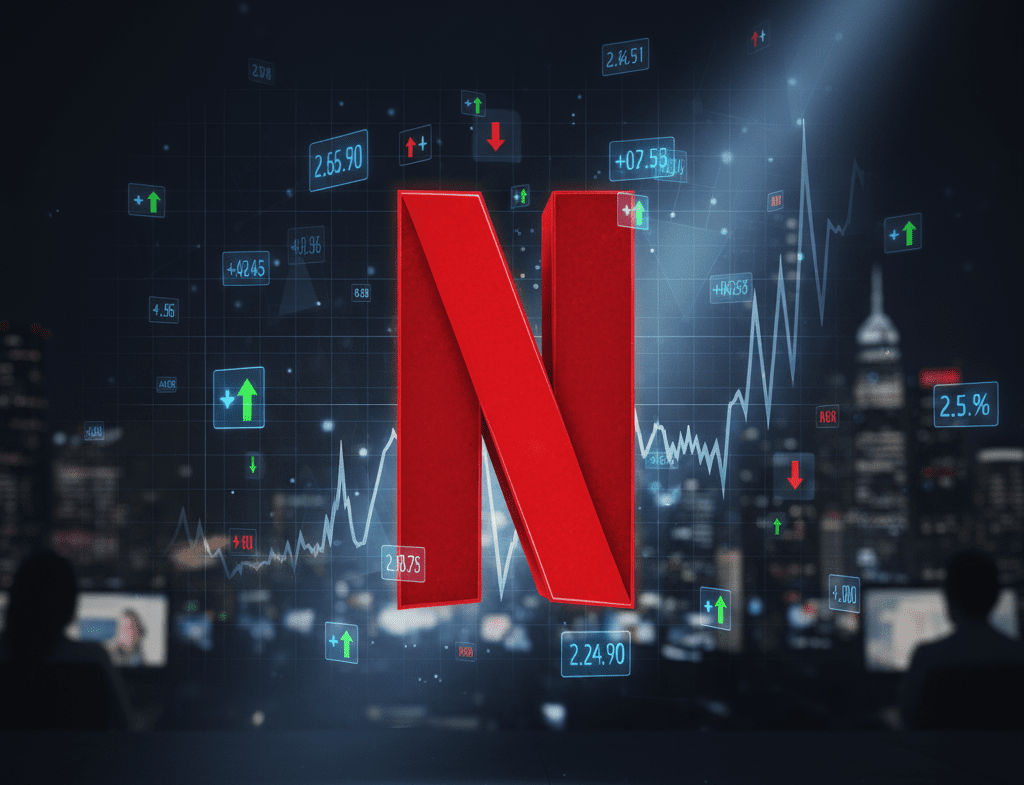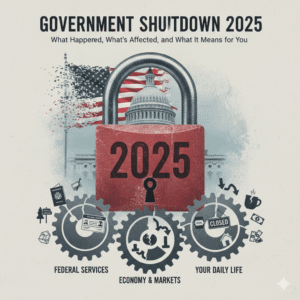In 2025, Netflix (NASDAQ: NFLX) is already on the watchlist of investors—as it should be. The streaming giant has been riding strong fundamentals, new revenue streams, and content growth. But recently a social media firestorm involving Hamish Steele, creator of Dead End: Paranormal Park, has emerged, with high-profile figures calling to cancel subscriptions. As tensions heat up, what does this mean for Netflix’s stock, investor sentiment, and long-term performance?
In this article, we’ll break down:
Netflix’s financial and business fundamentals
The Steele controversy and its dynamics
Potential implications for the stock
Risks, scenarios, and what to watch moving forward
1. Netflix Stock Fundamentals & Recent Performance
Recent Stock Trends
Netflix has seen considerable upside in 2025, with share price gains reflecting strong subscriber growth and better monetization. Benzinga+2Yahoo Finance+2
Analysts have mixed but mostly optimistic outlooks; some maintain “Buy” ratings with aggressive price targets. Robinhood+1
Insider activity: in Q3 2025, some Netflix insiders sold shares under prearranged plans, while also retaining large holdings to signal confidence. AInvest
Business Drivers & Growth Levers
Ad-supported tier / monetization: Netflix has been expanding its ad-supported offerings to capture revenue beyond subscriptions. MarketWatch+1
Content investments & IP: Original programming remains a core driver. Blockbuster releases, sport rights, and global content help retain and grow user base.
International expansion: Outside the U.S., growth potential is still significant, though challenges (local competition, regulation, content costs) persist.
Cost discipline / margin control: Scaling costs, licensing, and content licensing remain headwinds, especially as content costs rise.
2. Who Is Hamish Steele & What’s the Controversy?
Background on Hamish Steele
Hamish Steele is a creator known for Dead End: Paranormal Park, an animated series on Netflix based on the graphic novel DeadEndia. Wikipedia+2hamishsteele.co.uk+2
The series was cancelled in January 2023, but it has continued to draw attention due to its themes and fan base. Newsweek+1
The Incident & Public Backlash
Recently, a post attributed to Steele went viral in which he allegedly referred to conservative activist Charlie Kirk as a “Nazi” — in response to comments about Kirk’s death. The Daily Beast+4Indiatimes+4Newsweek+4
Elon Musk publicly announced he was canceling his Netflix subscription in protest of Steele’s remarks and what he viewed as ideological bias in Netflix’s content. The Times of India+3Barron’s+3Forbes+3
Steele later denied the claims, calling them “lies and slander” in a statement on Bluesky and blocking his social media accounts. Newsweek
Why It Matters
The controversy is amplifying debates about content, “woke” culture, cancellations, and whether audience backlash can materially affect big streaming platforms.
It also raises questions about reputational risk for Netflix: the company is being dragged into political and cultural conflicts that may not be core to its business model.
3. Potential Impacts on Netflix Stock
Short-Term Sentiment & Volatility
The controversy could increase volatility: negative press, calls for cancellations, and social media backlash often spook markets, especially among retail investors.
If a wave of subscription cancellations follows, revenue growth might slow in near term — though whether that is material is uncertain.
Subscriber Churn Risk
The magnitude of cancellations matters. If a small vocal minority unsubscribes, the effect might be negligible. If broader audiences (e.g. partisan groups) follow, the base growth could be impacted.
Netflix’s high margins and pricing power provide some buffer, but margin erosion is possible if growth weakens.
Reputation & Brand Risk
Damage to brand perception among certain demographic or political segments could reduce traction in key markets or hamper content acquisition deals.
But Netflix’s brand has been resilient across ideological divides in the past; it needs to evaluate whether this is another flashpoint or a lasting issue.
Institutional / Analyst Reaction
Analysts might revise forecasts downward if they perceive increased risk. Price targets and ratings may become more conservative.
Long-term institutional investors may monitor whether the controversy suggests governance or oversight issues at Netflix.
4. Risks, Scenarios, and What to Watch
Key Risk Factors
Scale of subscription cancellations: If cancellations surge, revenue guidance could be missed.
Regulatory / political pressure: In countries less tolerant to content controversies, Netflix may face increased scrutiny or regulation.
Content backlash / production risk: Creators may avoid partnerships if ideological backlash becomes a recurring issue.
Cost inflation / licensing risk: Regardless of the controversy, rising costs and content licensing dynamics remain core risks.
Possible Scenarios
| Scenario | Likelihood | Impact on Stock | Key Trigger |
|---|---|---|---|
| Minimal containment | High | Low-to-moderate volatility, recovery quickly | Steele’s denial is accepted, backlash subsides |
| Moderate churn | Moderate | Mild drag on growth forecasts | Cancellation waves in certain segments |
| Major reputational bleed | Low | Material downward pressure | Broad consumer rebellion or media narrative shift |
What Investors Should Watch
Subscriber / churn data: Any signs of unexpected subscriber attrition or slower growth in new signups.
Earnings guidance and commentary: How Netflix addresses the controversy in its commentary, and whether management expects impact.
Analyst revisions: Watch rating and target changes from major firms.
Sentiment on social / media: Monitor how widespread the backlash is, and whether it gains traction in mainstream media.
Regulatory moves or political responses: In sensitive markets, governments might weigh in on content regulations.
Conclusion & Takeaways
Netflix remains fundamentally strong — its business model, content portfolio, and monetization levers are solid, which gives it resilience.
However, the Hamish Steele controversy adds a reputational risk layer that investors should not ignore, especially given how polarized media narratives can influence consumer behavior.
The key is scale — a small vocal backlash may be manageable; a large subscription exodus or sustained negative narrative could dent growth.
Investors should keep a close watch on subscriber metrics, Netflix’s public response, and how analysts & stakeholders adapt their outlook.





